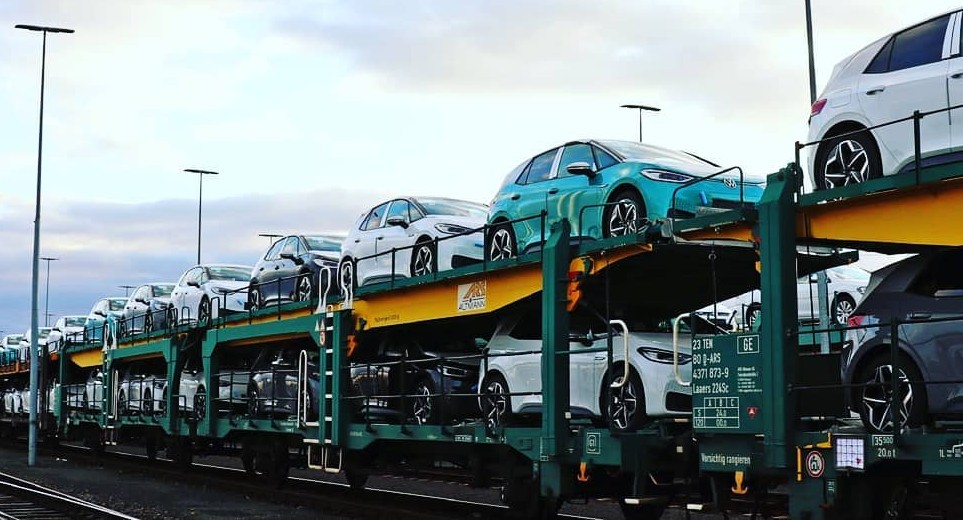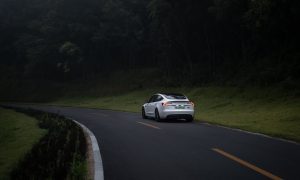There is a storm brewing in Volkswagen’s Wolfsburg plant, and it can very well make or break the career of CEO Herbert Diess, a strong proponent for the company’s transition to electric mobility. As problems continue to pile up for Volkswagen’s electric car program, the ID.3, a vehicle considered to be a rival to the Tesla Model 3, is starting to turn into a cautionary tale.
An extensive report from German news outlet Manager Magazin provided an in-depth look at the current state of Volkswagen’s electric vehicle initiative. According to the esteemed magazine, experts and top managers from the automaker are now meeting every working day in a massive push to get the ID.3 ready for consumer deliveries. But despite their disciplined efforts, the affordable EV is proving stubborn, causing notable delays in its release.
The Volkswagen ID.3 is an essential car for the German automaker, being a personal project for Diess, who has emerged as one of the most prominent voices in the auto industry pushing for electrification. More than a vehicle that can potentially beat the Tesla Model 3 in terms of pricing, the ID.3 is also the automaker’s key in avoiding €10 billion worth of emissions fines this year. Without the ID.3, the penalties cannot be avoided. Even with the vehicle on the market, VW would have to sell about 100,000 in 2020 to meet the company’s CO2 targets.
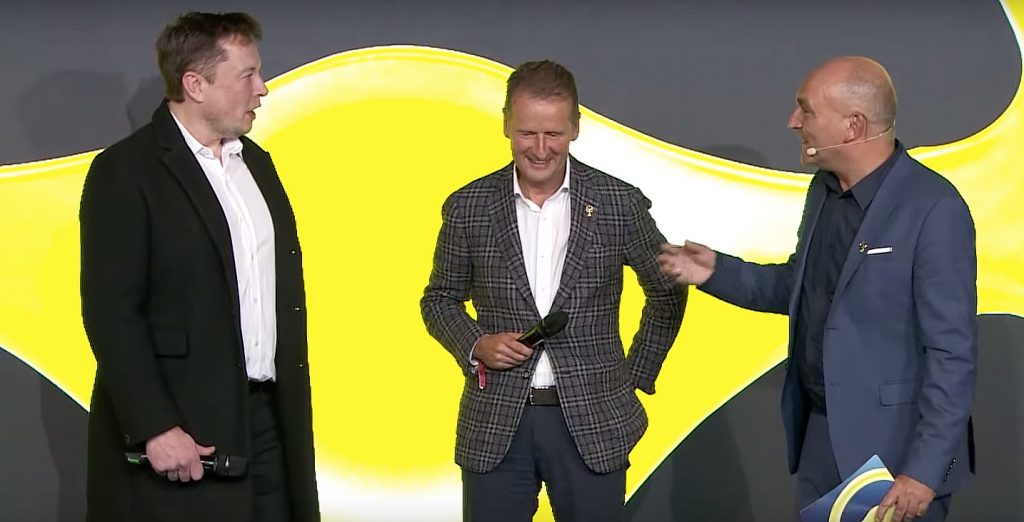
But the Volkswagen ID.3 ramp has been rife with issues. While the vehicles can be produced efficiently using the company’s extensive experience in car manufacturing, the ID.3’s software has proven troublesome. Simply put, the software of the vehicle does not work as it should, and VW experts have pointed the finger at the company’s haste in rolling out the all-electric car for production. Volkswagen experts have noted that the ID.3’s underlying architecture was developed too hastily, as the car’s system parts often don’t understand each other, resulting in errors.
Thus, every day, those involved with the ID.3 project meet and try to solve the car’s underlying issues. Manager Magazin‘s sources note that Volkswagen is now operating at an almost military level in its efforts to fix the ID.3’s software issues, but still, hundreds of test drivers report new faults in the vehicle nearly every day. One of the magazine’s sources, who claimed to be present in these meetings, noted that up to 300 faults could be reported in one day.
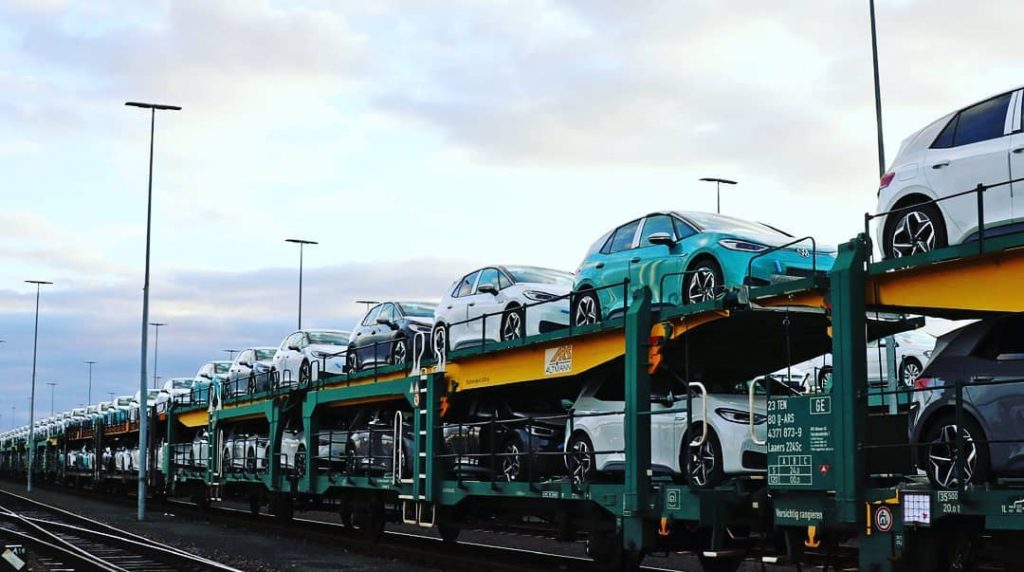
Amidst these issues, Volkswagen has adjusted the ID.3’s target from 100,000 in 2020 to just 80,000. Fortunately for the German automaker, it is a big company, and it includes carmakers such as Audi and Porsche, both of whom have already released their respective electric cars. But even these two companies’ EVs are not exactly rolling out smoothly either. The e-tron recently halted its production due to battery constraints from LG Chem, prompting Audi to lower the premium SUV’s forecast from 70,000 to 40,000 this year. The Porsche Taycan, despite excellent reviews from car enthusiasts, is also getting its deliveries in Germany delayed.
Volkswagen CEO Herbert Diess has stated that the shift to electric mobility will be difficult, noting at a top management conference last month that the compliance with the limits for supplying, building, and selling battery electric vehicles was “perhaps the most difficult task Volkswagen has ever had to face.” Considering the ID.3 program’s progress so far, as well as reports that the Porsches and Piëchs, VW’s major owners, are growing restless, it appears that the company’s EV challenges may just be beginning.
Ultimately, the ID.3’s issues are an unfortunate roadblock to the EV movement as a whole. The vehicle, after all, is a mass-market car, and it has the potential to be the second coming of the ubiquitous Beetle. The company just has to get its software settled and refined first–something that a small carmaker from Silicon Valley seems to have predicted when it started developing its first vehicles less than two decades ago.
H/T to JPR007.
News
Tesla Sweden responds to car magazine’s claims that Model 3 has deficient brakes
The company stated that it would be examining the two Model 3s that were used in the magazine’s test.

Tesla Sweden has responded to a car magazine’s claims that the new Model 3 sedan has “deficient” brakes. The all-electric sedan was subjected to the publication’s tests, and its braking distance was reportedly found to be lacking.
The car magazine’s tests
As noted in a report from Swedish car magazine Teknikens Värld, the new Model 3 Long Range’s braking distance proved subpar when it was tested, with the vehicle reportedly having a braking distance of a whopping 133.2 feet (40.6 meters). The magazine claimed that it repeated the test with another Model 3, and its results were only 5 feet (1.5 meters) better.
The magazine noted that this was unacceptable since an acceptable braking distance is 124 feet (28 meters), which also happens to be the Model 3’s braking distance when it was tested by Edmunds in the United States. The publication also stated that the Volkswagen ID.7 Tourer, which is equipped with drum brakes at the rear, had a braking distance that’s 16 feet (5 meters) shorter in its tests.
Tesla Sweden’s response
Tesla Sweden responded to the car magazine’s claims, stating that the all-electric sedan’s alleged braking performance was not consistent with the company’s data, nor does it align with the Model 3’s safety ratings. The company also noted that it would be examining the two Model 3s that were used in the magazine’s test.
“In the latest braking tests with Model 3, which were conducted by Teknikens Värld 2021, a braking distance of 36.5 meters was measured for Model 3 RWD and 36.7 meters for Model 3 Long Range AWD, so these results are not recognized or consistent with our internal tests.
“We are examining the two specimens to find out why the braking distances differ. Safety is number one at Tesla. Model 3 comes with all safety features as standard. Independent crash safety organization Euro NCAP recently announced new crash results for cars tested in May 2025. Euro NCAP gives the upgraded Model 3 a 5 out of 5-star safety rating and an overall score of 90%, making Model 3 one of the safest vehicles tested under the latest and most stringent testing protocol ever,” Tesla Sweden stated.
Teknikens Värld digs its heels
While Tesla Sweden has responded to its allegations, the car magazine noted that it will nonetheless stand firm on its claim that the new Model 3 has deficient brakes.
“The fact that the Model 3 previously passed the brake test is not relevant because today’s generation of the Model 3 is to be considered a new generation, as Tesla themselves often point out. Nor is the result in Euro NCAP relevant because they are different tests. We can therefore conclude that Tesla has deficient brakes on the new Model 3. It is good for everyone to know,” the car magazine wrote.
News
Trump pushes back on Elon Musk’s America Party, calls third-party move ‘ridiculous’
The clash marks a notable shift in the relationship between the two former allies.

United States President Donald Trump sharply criticized Elon Musk’s decision to launch a new political party, calling the move “ridiculous” and dismissing it as a distraction from the two-party system. The rebuke came shortly after Musk announced the formation of the “America Party,” aimed at disrupting what he calls the entrenched Republican-Democrat “Uniparty.”
Tensions escalate between Trump and Musk
The clash marks a notable shift in the relationship between the two former allies. Musk previously headed the Department of Government Efficiency (DOGE) under Trump’s administration, a position aimed at cutting federal spending. The alliance, however, appears to have fractured over policy differences, particularly Trump’s “Big Beautiful Bill,” which Musk notes will increase the country’s debt by $5 trillion.
Speaking to reporters on Sunday before boarding Air Force One, Trump said, “It’s always been a two-party system and I think starting a third party just adds to the confusion.” Hours later, he posted on Truth Social that Musk had gone “off the rails,” accusing him of promoting an “Electric Vehicle Mandate” that would have required all Americans to switch to EVs in a short timeframe.
Trump emphasized that his latest tax bill deliberately excluded incentives for electric vehicles, saying Americans should be free to choose gasoline-powered, hybrid, or other new technologies without federal mandates, according to a report from the BBC.
Musk outlines goals for America Party
Musk has been open about his support for ending the EV tax credit, as long as the incentives for other industries like oil and gas are removed as well.. The CEO has adopted this stance for several years. He has also not supported the idea of a mandate that forces consumers to purchase electric cars.
Musk also stated that the newly formed America Party will focus on congressional races in 2025 and 2026, rather than fielding a presidential candidate in the near term. In his post on X, the Tesla and SpaceX CEO criticized both major parties for contributing to the national debt. He also noted that the Department of Government Efficiency’s work will be rendered useless if the US’ debt increases due to Trump’s Big Beautiful Bill.
News
Tesla UK sales see 14% year-over-year rebound in June: SMMT data
The SMMT stated that Tesla sales grew 14% year-over-year to 7,719 units in June 2025.

Tesla’s sales in the United Kingdom rose in June, climbing 14% year-over-year to 7,719 units, as per data from the Society of Motor Manufacturers and Traders (SMMT). The spike in the company’s sales coincided with the first deliveries of the updated Model Y last month.
Model Y deliveries support Tesla’s UK recovery
Tesla’s June performance marked one of its strongest months in the UK so far this year, with new Model Y deliveries contributing significantly to the company’s momentum.
While the SMMT listed Tesla with 7,719 deliveries in June, independent data from New AutoMotive suggested that the electric vehicle maker registered 7,891 units during the month instead. However, year-to-date figures for Tesla remain 2% down compared to 2024, as per a report from Reuters.
While Tesla made a strong showing in June, rivals are also growing. Chinese automaker BYD saw UK sales rise nearly fourfold to 2,498 units, while Ford posted the highest EV growth among major automakers, with a more than fourfold increase in the first half of 2025.
Overall, the UK’s battery electric vehicle (BEV) demand surged 39% to to 47,354 units last month, helping push total new car sales in the UK to 191,316 units, up 6.7% from the same period in 2024.
EV adoption accelerates, but concerns linger
June marked the best month for UK car sales since 2019, though the SMMT cautioned that growth in the electric vehicle sector remains heavily dependent on discounting and support programs. Still, one in four new vehicle buyers in June chose a battery electric vehicle.
SMMT Chief Executive Mike Hawes noted that despite strong BEV demand, sales levels are still below regulatory targets. “Further growth in sales, and the sector will rely on increased and improved charging facilities to boost mainstream electric vehicle adoption,” Hawes stated.
Also taking effect this week was a new US-UK trade deal, which lowers tariffs on UK car exports to the United States from 27.5% to 10%. The agreement could benefit UK-based EV producers aiming to expand across the country.
-

 Elon Musk7 days ago
Elon Musk7 days agoTesla investors will be shocked by Jim Cramer’s latest assessment
-

 News2 weeks ago
News2 weeks agoTesla Robotaxi’s biggest challenge seems to be this one thing
-

 Elon Musk2 weeks ago
Elon Musk2 weeks agoFirst Look at Tesla’s Robotaxi App: features, design, and more
-

 News2 weeks ago
News2 weeks agoWatch Tesla’s first driverless public Robotaxi rides in Texas
-

 News2 weeks ago
News2 weeks agoWatch the first true Tesla Robotaxi intervention by safety monitor
-
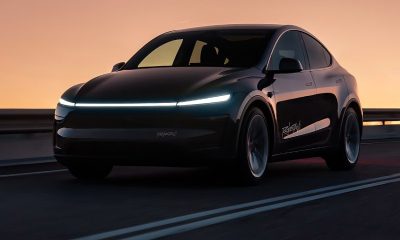
 Elon Musk2 weeks ago
Elon Musk2 weeks agoTesla officially launches Robotaxi service with no driver
-

 Elon Musk1 week ago
Elon Musk1 week agoA Tesla just delivered itself to a customer autonomously, Elon Musk confirms
-

 News2 weeks ago
News2 weeks agoTesla Robotaxi rollout proves that Elon Musk still delivers, even if it’s late

